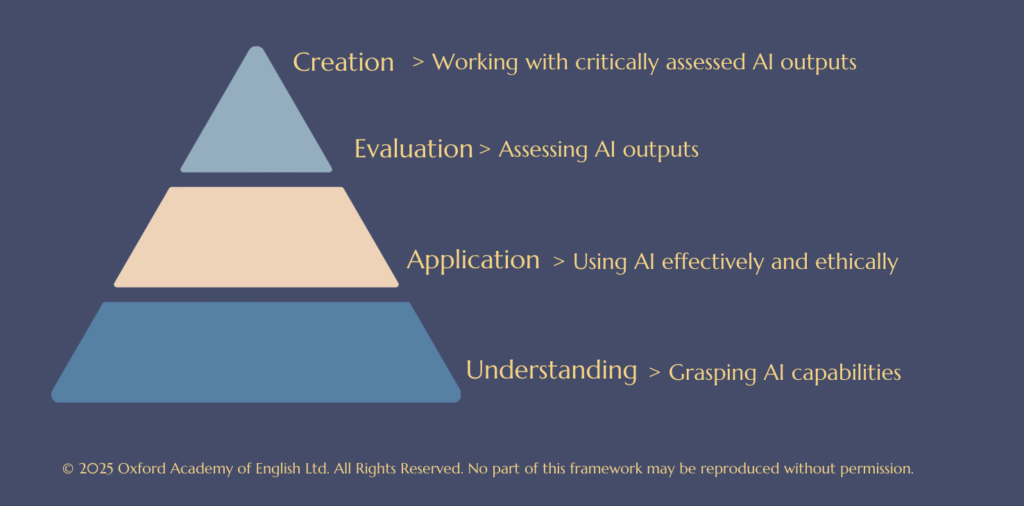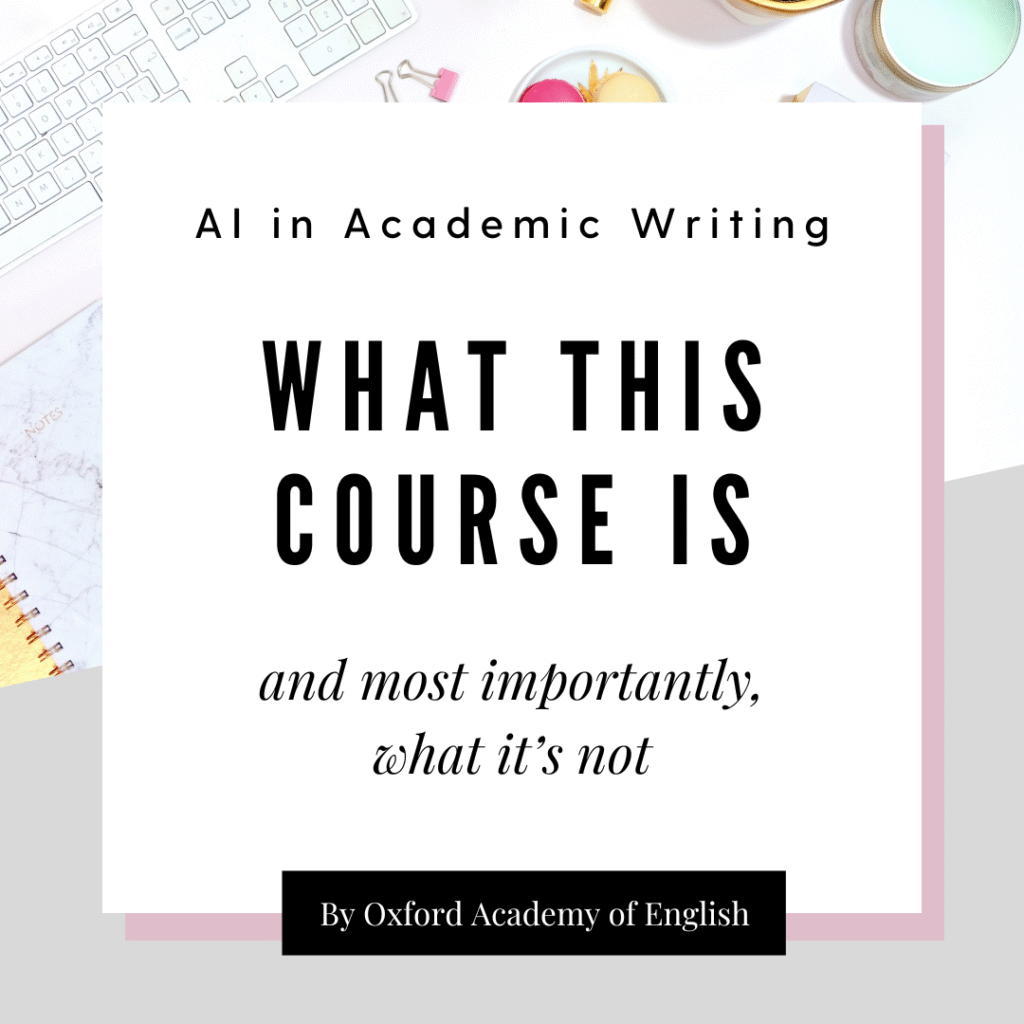There’s been some confusion about what my AI in Academic Writing course actually does. Some assume it encourages shortcuts, undermines academic integrity, or allows students to let AI do their thinking for them.
Let me be clear: it’s the exact opposite.
This course was created because students often use AI without guidance, structure, or awareness of ethical boundaries. Rather than banning AI or ignoring its presence, we teach students how to work with it ethically, critically, and effectively.
What the Course Is
✅ Grounded in a Revised Bloom’s Taxonomy
The course follows a clear developmental framework:
- Understanding AI’s capabilities and limitations
- Applying AI tools ethically and appropriately
- Evaluating AI output through a critical lens
- Creating original academic work with AI as a support, not a substitute

Truszkowska, K. (2025) AI in Academic Writing Framework. Presented at: TESOL Conferences and Exhibitions, University of Sharjah, 18–20 April 2025.
🧠 Developing Critical Thinking and Analytical Skills
By integrating guided prompts, reflective writing tools, and scaffolded learning, the course ensures AI is used to enhance—not replace—thinking.
Students:
- Evaluate AI-generated content
- Question sources
- Build stronger, evidence-based arguments
Most importantly, they learn to use AI ethically and transparently, aligned with UK academic integrity standards.
We’re not just teaching them how to use tools — we’re teaching them how to think better.
🎓 Meeting Students Where They Are
Rather than ignoring or banning AI tools, this course embraces students’ digital behavior and turns it into a structured, productive, and meaningful academic practice.
It:
- Builds future-ready graduates who know how to collaborate with AI, not depend on it
- Improves grades and academic performance
- Increases ROI in education by aligning digital literacy with academic success
🎯 Course Objectives
By the end of the course, students will be able to:
- Understand the ethical implications of AI in academic contexts
- Develop critical thinking skills to support original analysis
- Learn the appropriate role of AI in research and writing
- Master citations and references when working with AI-generated content
- Navigate Russell Group university policies on AI usage
- Improve academic writing while maintaining authenticity
- Gain a competitive edge in coursework and future careers
What the Course Is Not
✘ Not a shortcut to avoid writing
✘ Not a way to “cheat the system”
✘ Not about outsourcing thought to ChatGPT or any other tool
This course doesn’t reduce academic expectations. It raises them.
We expect more from students because we give them the tools to do more.
🌍 Real Outcomes, Real Impact
International students who previously struggled with unfamiliar academic standards are now confidently applying critical thinking terminology and structure to their work.
We’ve already seen learners as young as 13 years old secure Oxford Summer Camp scholarships by applying the skills taught in this course.
The transformation is real and it’s just the beginning.
Why This Matters
AI is here to stay. The question isn’t if students will use it, but how.
Will they use it blindly, or wisely? To cut corners, or to think deeper?
This course ensures the answer is: wisely and ethically.
🔗 If you’re an educator, policymaker, or student who wants to be part of a future where AI strengthens — not weakens — academic work, let’s talk.
Send us an email at contact@oaoe.co.uk and let’s see how we can help you.

